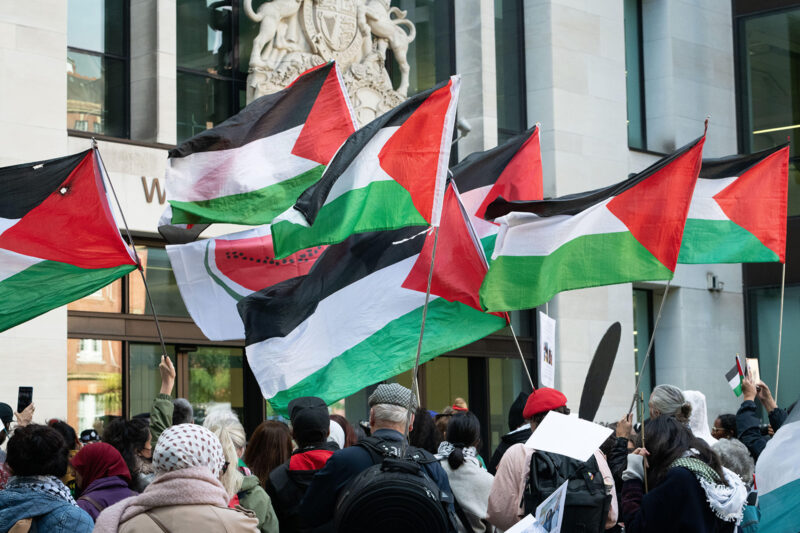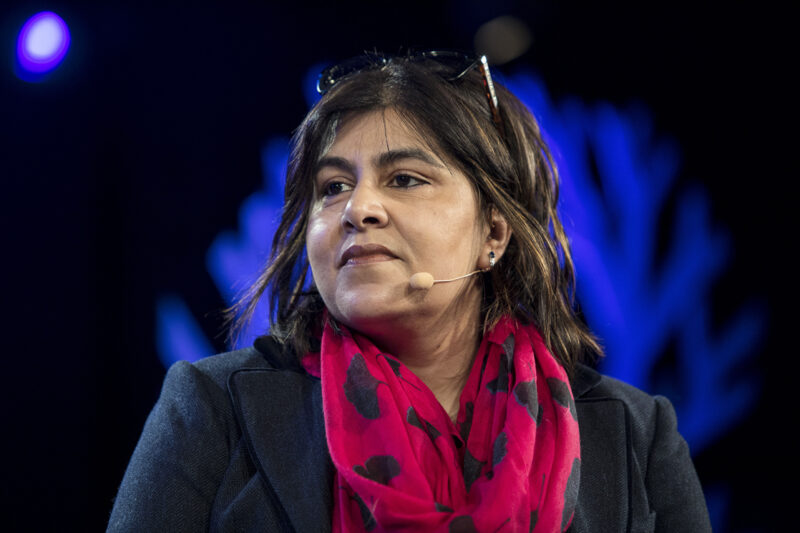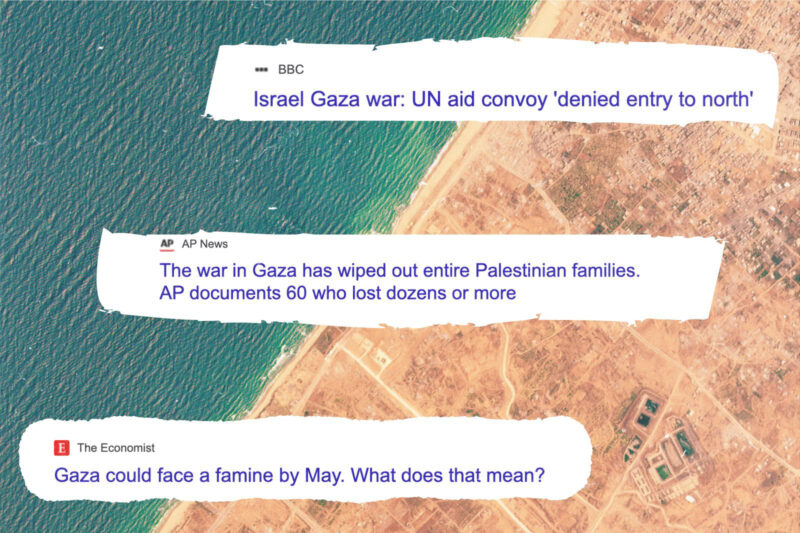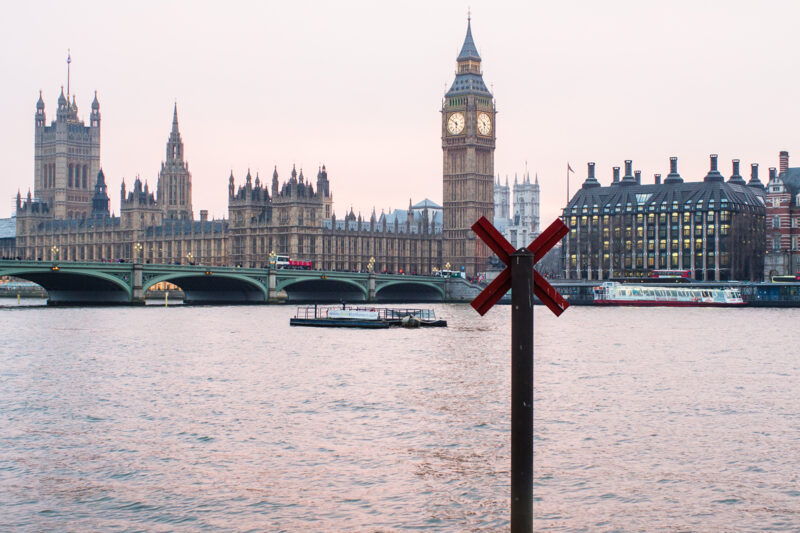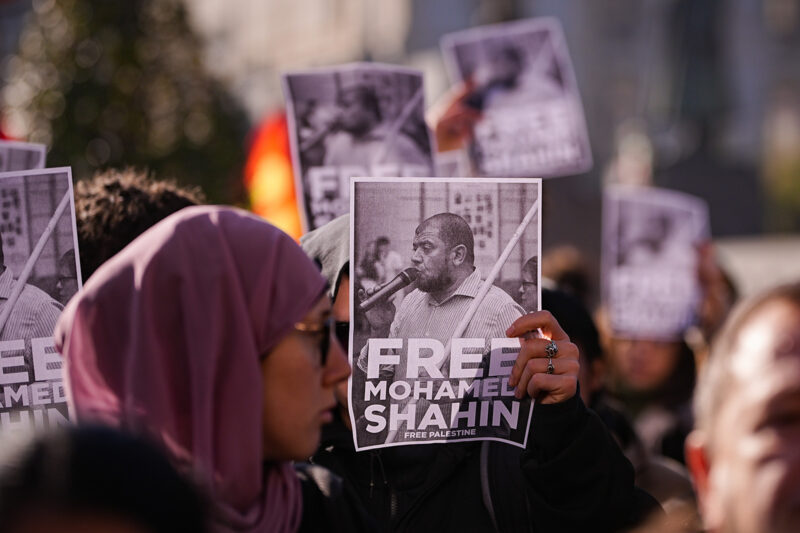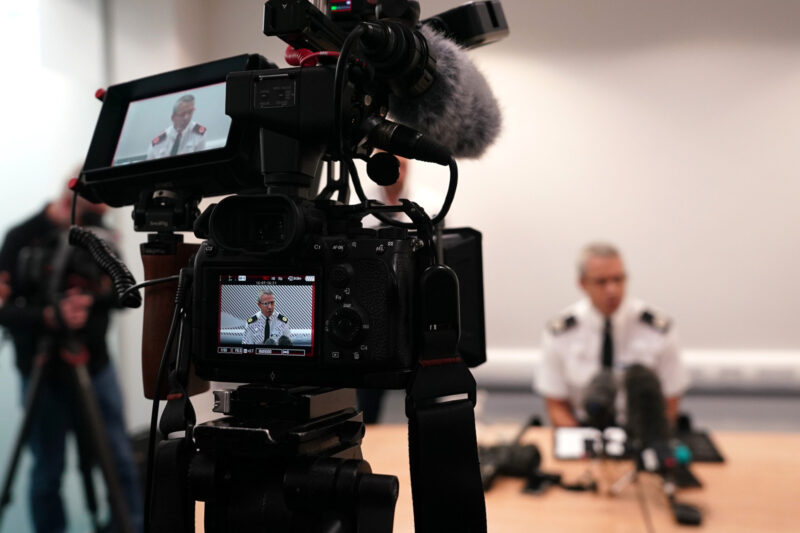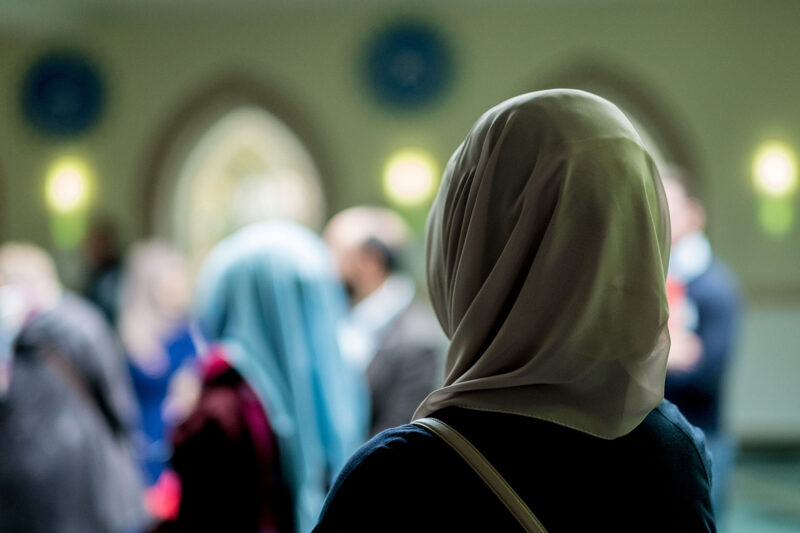Marieha Hussain: Palestine protester not guilty of public order offence over ‘coconuts’ placard
Sign depicting Suella Braverman and Rishi Sunak went viral on social media — but court finds it was not racist

A woman has been found not guilty of a racially aggravated public order offence after carrying a placard calling Rishi Sunak and Suella Braverman “coconuts” at a Palestine protest in November.
In a speech outside the court, Marieha Hussain told supporters that “the damage done to my reputation can never be undone,” but added she was “more determined than ever” to continue speaking out about Gaza.
There were cheers from the public gallery as the verdict was read out on Friday afternoon.
It follows a two-day trial at Westminster Magistrates Court, where Hussain, 37, said she had been trying to highlight how “policies and rhetoric” perpetuated by then home secretary Braverman, and supported by then prime minister Sunak, were “racist”.
Hussain told the court that the signs she and her family had carried that day were “positively reacted to”. Prosecutors had argued that the “coconuts” sign was abusive and could have caused harassment, alarm or distress to people in central London at the time who did not agree with her views.
“We had a lot of people asking to take pictures with the placards and laughing,” she said. “In fact, people were asking us to take pictures of them holding the placard.”
“Not one single time” did anyone come up to her and criticise the placard or her right to carry it, she added.
Hussain told the court that despite walking past police all day, and even stopping to ask a group of police officers for directions, none expressed concern about the sign.
“When you left the family home that morning to drive to central London as a family, did you contemplate the possibility that by the end of the day, a photo of you with that placard was going to be splattered all over social media?” her defence lawyer, Rajiv Menon KC, asked her.
“Never in a million years,” she told him.
Yesterday, the court heard how Hussain’s placard was only flagged to police after a photo of her holding it was posted on X by an account called “Harry’s Place” — described by the defence as a “secretive political blog”. The post amassed about 4.1 million views.
Hussain was only made aware the photo had gone viral when she was on her way back home to High Wycombe in Buckinghamshire. She explained that a screenshot of the post had been sent to her by a family friend. It also was during that car journey that she learned through social media that the Metropolitan Police was looking for her.
Hussain told the court that she had been going to pro-Palestine protests for 10 years and attended the march on 11 November because she was “disturbed and distressed by the genocide in Gaza”.
Disputing Braverman’s claims that protests for Palestine were “hate marches”, she said: “I’ve never in 10 years attended a rally or demo for Gaza that was remotely close to a hate march. It’s always been fun, peaceful, and respectful.”
When asked by Menon why she superimposed photos of the former prime minister and former home secretary onto coconuts, she said: “I was trying to highlight the policies and the rhetoric that Braverman was saying and doing at the time — supported by the prime minister — as being racist.
“There were multiple things that she’d been saying and doing, which were really well highlighted at the time and commented on in the media a lot. Because she was not reprimanded by the prime minister, I feel like he was giving it a nod.”
Hussain described her understanding of the definition of “coconut” as someone who is “brown on the outside but has racist views on the inside”.
However, prosecutor Jonathan Bryan claimed the word was a “crude racial trope” and suggested she was being “disingenuous” in her definition, arguing that his own understanding of the word is someone from an African or Asian heritage who doesn’t hold “African or Asian values”.
When asked by her defence lawyer what she thought the prosecution meant by “African or Asian values”, Hussain answered: “I honestly don’t know what he means by that.”
“I have grown up hearing that word culturally and politically. Culturally, sometimes my own dad called me a coconut. Politically, we’re talking about Black and brown politicians in high office who perpetuate and push racist policies… that’s what my satirical placard was depicting.”
Bryan also suggested it was “doubly racist” to refer to Sunak and Braverman as coconuts as a criticism of “white values”. When asked by her lawyer if she knew what the prosecutor meant by “white values”, she also said she did not.
And the prosecutor argued that there were thousands in central London that day, and that out of that number, “there must have been” some who either didn’t agree with the placard or who would have taken offence to it.
In his closing statements, Bryan said that, had Hussain stopped at the words “Cruella Braverman” — which were on the back of the placard — and depicted Braverman as a cartoon villain, “no one would have suggested that that would have been anything other than a political comment”. But he maintained that she “brought race into the equation” by referring to Braverman and Sunak as “coconuts”.
Manon in his closing statement, however, argued that it would be a “tragedy” if Hussain were to be convicted of a racially aggravated offence while exercising her right to peaceful protest, “when she clearly doesn’t have a racist bone in her body”.
“She should not be criminalised for her satirical coconut placard. This legislation was brought forward by the then government because, for the last 20 years before that, racial violence and racial harassment was out of control in this country. I don’t think anybody in the late 1990s could have imagined that someone like Marieha Hussain would be facing a charge like this,” he said.
Manon went on to add: “This prosecution of Mrs Hussain is a disturbing attack on the right to freedom of expression, the right to peaceful protest, the right of anti-racists to question members of their own race who use racist rhetoric, the right to satirise our politicians, the right to mock and tease and make fun of our politicians, the lighthearted way that Mrs Hussain attempted to do with her placard.
“Despite all the progress that we have made in challenging racism in all its manifestations, the past 12 months have been very frightening for many Black and brown people, migrants and asylum seekers.”
He told the judge it was “incomprehensible” and a “tragedy” that Hussain was being prosecuted while “Suella Braverman, Nigel Farage, Stephen Yaxley-Lennon, and Frank Hester” were “free to fuel racial tensions”. Hester is the wealthy Tory donor who said that Diane Abbott, the MP for Hackney North and Stoke Newington, should be shot and that looking at her meant “you just want to hate all Black women”.
He added that it would also be a tragedy for Hussain to be barred from teaching, which would have been “almost certain” had she been convicted.
Manon referred to Bryan’s argument that “coconut” was a “well known slur” and asked: “Known to who?”
He pointed out that the prosecution had produced no expert witnesses to confirm this.
Delivering her judgment, district judge Vanessa Lloyd told Hussain: “Taking account of the context in which your placard was displayed and the evidence put forward to the court, I find that it is part of the genre of political satire. I accept that just because a term is used that can only be aimed at people of a certain race, does not make it racially abusive.”
 Newsletter
Newsletter


